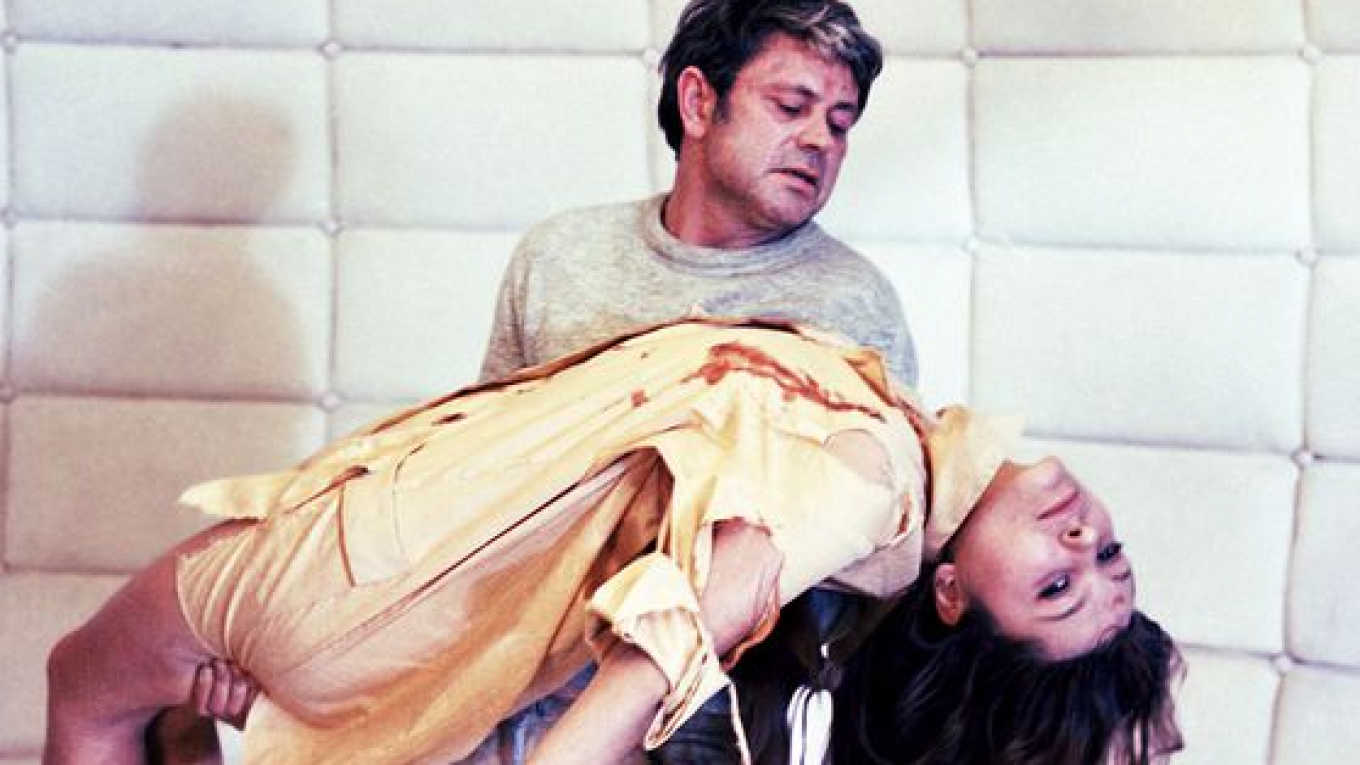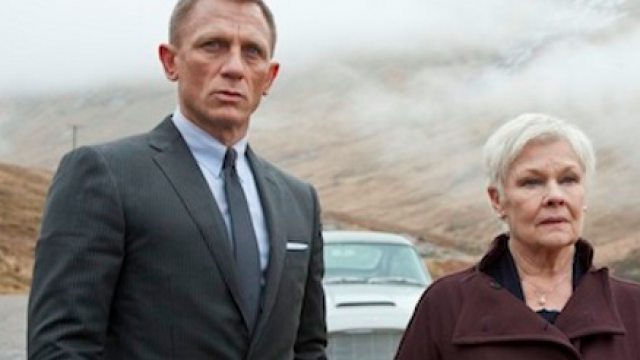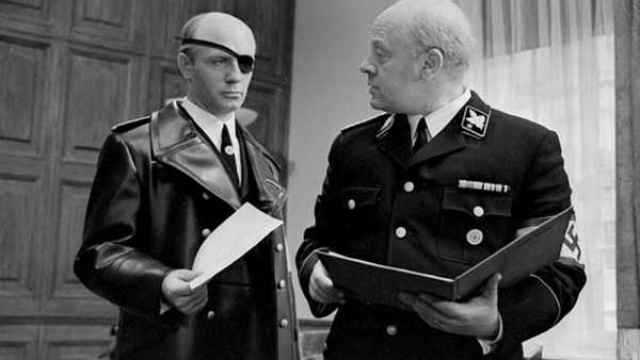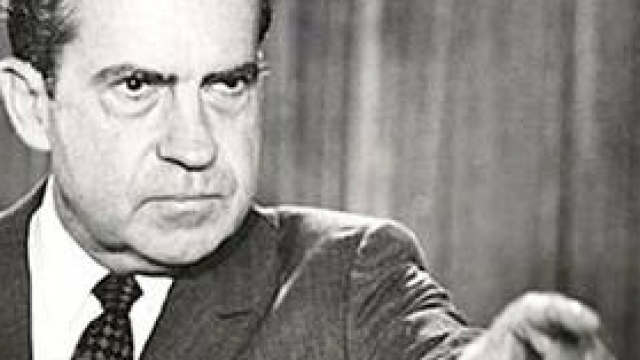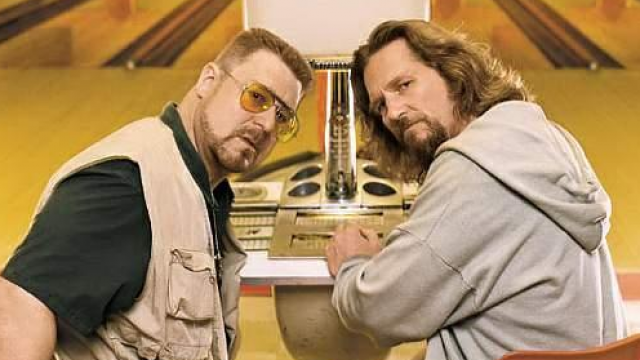It’s Hot Music Meets High Tech Week on Moscow television: viewers get fine close-ups of two of the country’s classic tunesmiths, then get the pants scared off them by two cyber-science fiction features. Oh, and if you thought Russian TV would never in your lifetime air another informed discussion of the workings of Stalinism, you were wrong. Here’s the where and when:
Start the week off rockin’ with a superb documentary look at a genuine Moscow rock-pop classic: “Andrei Makarevich: The Machine of His Time” (2013). Two generations of Russians have grown up to the music of Makarevich and his group Time Machine, and a third is on the way — the latter despite a long, loud and futile state campaign to brand the singer-songwriter a “national traitor” for opposing his government’s aggressive mayhem here and abroad. How important is Makarevich? Garik Sukachev rightly describes him and Time Machine as “our Beatles, the original group that changed all of rock music in our country.” They’ve been at it 45 years now, as this Yury Odnopozov feature nicely illustrates. Thank heavens they’re too big to intimidate and don’t plan to stop.
Andrei Makarevich: The Machine of His Time Андрей Макаревич. Машина его времени. Who’s Who, Monday at 5 p.m.
With new monuments to Josef Stalin going up around the country, the Top Secret channel deserves major credit for presenting an informed discussion of the mass terror that became the hallmark and essence of the Soviet dictator’s regime. “Auditorium: The Stalinist Terror” (2016) brings together two Russian specialists on the Stalin period to address such questions as: How does state terror differ from a “simple” massacre? How was the terror of the Stalin period structured? How did the state-devised category “enemy of the people” become the basis for violence by the state against its citizens? What was the relationship of the mechanisms of terror to Soviet laws of the time, and how did they correlate with international norms and principles of law? Historians Nikita Petrov (the Memorial Society) and Oleg Khlevniuk (Higher School of Economics) are joined by moderator Boris Dolgin, scholarly editor of Polit.ru.
Auditorium: The Stalinist Terror Аудитория. Сталинский террор. Top Secret, Tuesday at 5:05 a.m. and 11:05 p.m.
By late Wednesday, with any luck, the interminable American election will finally be over and everyone can heave a prolonged sigh of relief — everyone except the poor Russians, that is! According to the Zvezda channel’s “Special Report: Cyber Attack USA” (2016), the end of the U.S. election means the beginning of the real struggle. The United States has been “preparing an army of Internet fighters” for just this occasion, it seems: “Secret agents in our computers are already waiting for the action order,” due to be issued after “the end of the battle for the master's chair in the Oval Office” — that is, as early as Wednesday night! This report presents viewers with “experts on Internet security from the Kaspersky Laboratory” to “examine the scale of the new threats” in the coming clashes – “the first battles of World WAR III.” Perhaps we were a bit hasty in ending the election campaign after all.
Special Report: Cyber Attack USA Специальный репортаж. Киберудар США. Zvezda, Wednesday at 8:05 p.m.
On Thursday evening Kultura presents a unique “double feature” that modern music enthusiasts and lovers of documentary filmmaking should catch at all costs. First up is the premiere episode of a series by one of the great Soviet-Russian documentarists of the last half-century, Alexei Simonov, in which the filmmaker looks back over his work and its subjects. “Alexei Simonov: Pieces of a Life” (2016) starts with reflections on the great pioneer of Soviet jazz, Leonid Utyosov, whom Simonov interviewed on camera in 1971. After this retrospective reconsideration, viewers get to see the revealing documentary that Simonov produced 45 years ago: “With a Song of Life: Leonid Utyosov” (1971).
Put briefly, what viewers get here are two fascinating master craftsmen, neither of whom liked to pull punches, explaining just how they did what made them great. Russian television doesn’t get much better than this. Or anybody’s television, come to that.
Alexei Simonov: Pieces of a Life. Leonid Utyosov. Алексей Симонов "Кусочки жизни... Леонид Утесов." Thursday at 8:45 p.m.
With a Song of Life: Leonid Utyosov С песней по жизни: Леонид Утесов. Kultura, Thursday at 9:15 p.m.
Andrei Tarkovsky’s “Solaris” (1972) certainly ranks among the greatest science fiction films in the history of the genre – and bears attentive watching now more than ever. Humans have begun to attack each other, indeed whole countries, using cyber-machinery whose powers and potential neither the aggressors nor the victims wholly understand. “Solaris” lays out for us a story of massive resistance in the not-too-distant future to this kind of invasion-obsessed cyber-folly – resistance not from other humans, but from an entire planet that knows better.
“Solaris” is far more than a Soviet answer to Stanley Kubrick’s imposing “2001: A Space Odyssey” (1968); it is actually more, in fact, than the eponymous Stanisław Lem novel on which it is based. Tarkovsky wanted to go deeper into the human psyche than his predecessors and show the risks of what lies in wait there for all of us. Is there a more important story to tell today?
Solaris Солярис. Promotion, Friday at 10:00 p.m.
A Message from The Moscow Times:
Dear readers,
We are facing unprecedented challenges. Russia's Prosecutor General's Office has designated The Moscow Times as an "undesirable" organization, criminalizing our work and putting our staff at risk of prosecution. This follows our earlier unjust labeling as a "foreign agent."
These actions are direct attempts to silence independent journalism in Russia. The authorities claim our work "discredits the decisions of the Russian leadership." We see things differently: we strive to provide accurate, unbiased reporting on Russia.
We, the journalists of The Moscow Times, refuse to be silenced. But to continue our work, we need your help.
Your support, no matter how small, makes a world of difference. If you can, please support us monthly starting from just $2. It's quick to set up, and every contribution makes a significant impact.
By supporting The Moscow Times, you're defending open, independent journalism in the face of repression. Thank you for standing with us.
Remind me later.



